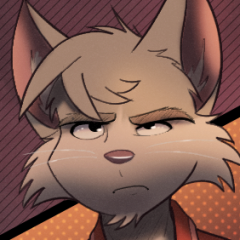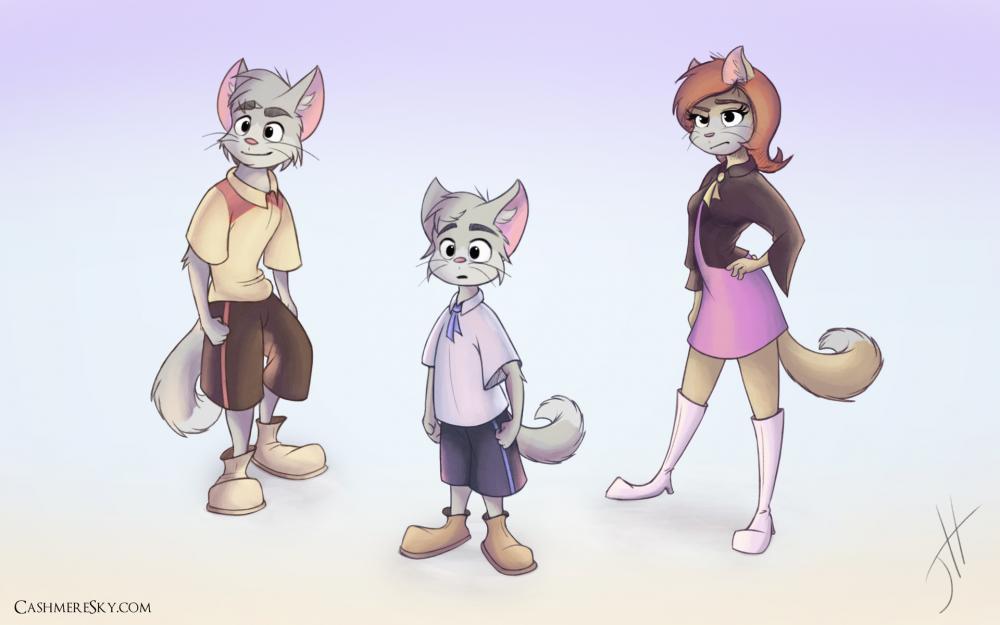Leaderboard
Popular Content
Showing content with the highest reputation on 08/13/2016 in all areas
-
OCR monetizing mixes on YouTube
zykO and 6 others reacted to Ramaniscence for a topic
So, I figured this would come up at some point, and I don't think many people are arguing the profit angle so much, but let me chime in with my experience: First of all, as far as I know, I'm the one of the only people doing this "game arrangement community" type of thing anymore. Jake has his own business going on and doesn't have time to worry about game arrangements too much. Most other people got out, or handed off to me. Arguably I don't even do too much anymore, at least visibly. We're constantly working on things, but 2 things keep anything from moving forward at a decent pace: time and money. Right now, my yearly operating costs, on the low end, are about $1,000. Between servers, web services, domains, etc, I spend about $1,000 per year. Like OCR those go through a sole proprietor LLC which comes out of my taxes. $1,000 a year isn't that much, but that's still a flat screen TV I put into, basically just hosting things, every year. Obviously OCRs operating costs are way more than that, and yes, apparently they're making more money than it costs to run the site, but that, in no way, means they don't need more money. Do you know what I would do if I had more money? I would put it back into the site, which is what Dave does. Advertising, event presence, etc. More importantly than that, I would outsource my job in a second, if I could afford it. Every hour I have to work on any one of the sites, is an hour I can't spend doing something else. Whether it be working on a freelance project, or just actually not working on anything for sanity. If I made a huge surplus I would hire people, paid people, that would work on maintaining sites, updating sites, adding new features to sites, for me, as a job, so I could do my own job which is a thing I get paid to do separate of this that pays my bills. Real scenario if I had to get control of OCR and Patreon and ads weren't a thing? It would close. Simple as that. I wouldn't be able to cover the operating costs, the government would desolve the LLC for not being a profitable company, and I would eventually drain my own bank accounts trying to keep everything afloat. tl;dr: It's very easy as someone on the outside, or someone who hasn't managed a project like this, to say "Well it costs X so you should get paid X to keep it up", and sure that's true...if X is the only cost ever, and if absolutely no work or time goes into growing or maintaining it. At the moment it requirements more time or man power, then you are operating at a loss. That an opportunity cost. I have no comment on the legal issues because I don't know anything about fair use or copyright law.7 points -

OCR monetizing mixes on YouTube
Nutritious and 6 others reacted to djpretzel for a topic
Alright, I think I'm caught up on the thread. I want to respond to the above comment from @Garde first because I've already apologized, and while apologies are nice, the simple fact that I made one at all DOES indicate that I agree that this could potentially have been handled better... ideally, our "experiment" would have been shorter, and we would have stuck with the original plan to make an announcement after the first week, kick off a discussion, and time that to coincide with 501c3 filing status and/or updated artist pages, where we hope to emphasize artist promotion more. Filing for 501c3 means having at least SOME of your ducks in a row, and while @Chimpazilla put some materials together that I've reviewed, most of my OCR time these days is consumed with posting mixes, coordinating albums, and trying to work on several different projects to improve the site, all at the same time. I'm not going to lie, being a father of two has affected the time I can devote to OCR, but I'm still doing everything I can. We were always intending to discuss this with artists BEFORE enabling the back catalog, and I want to emphasize this... the number of videos on our channel with ads enabled right now is less than half a percent of the total videos. That's not an explanation for not telling anyone about the experiment (which is more about observing the effects in a normal context), but it does hopefully support & make clear that our intention was to wait for this conversation to take place BEFORE enabling 99.5% of the rest of the videos. It might FEEL like back-pedaling... I get that, I do... but if you think about this point, and actually believe we were never going to tell anyone, then why have we NOT yet enabled ads on 99.5% of the videos? Okay, I did want to clear that up, because at least on the surface it's a legit point. Now, the current concerns seem to break down along these lines, with the following explanations: This isn't right, because OCR staff shouldn't make money off the mixes. We don't; our 2007 content policy stipulates how funds will be used (site operation and promotion), and banner ads have been in place for over a decade. Artists should have been informed prior to ANY videos being enabled with ads. We apologize for this being a surprise, but we DID want to observe the impact of ads for a small percentage of mixes in a neutral setting before discussing this with artists and then, eventually, enable it for 99.5% of the rest of the videos... we also wanted to time that discussion/announcement with 501c3 filing, which in retrospect has delayed things for too long. YouTube ads are different from website ads because they feel different, play before the actual music, are embedded, etc. A video ad IS different from a website ad in terms of the medium, but the end result is often the same. Having to "skip" an ad CAN feel more intrusive - which is exactly why we wanted to monitor the impact with a "test batch"...our observations have been that very few noticed or were adversely affected by this change. It's worth noting that we do not enable "unskippable" ads, and NEVER will. They are Satan. We've also never enabled certain types of website ads that are more obnoxious - "pop-unders" and full-page timed skippable things.... uhh, because we hate them. YouTube ads aren't covered by the current content policy, or it's not clear. When we worked with artists back in 2007 on our content policy, we very intentionally tried to make it "future-proof" by using flexible language, where it made sense. Regarding ads, we used the phrase "advertisements presented in the context of submitted material" - I personally feel that is clear enough to convey that we were NOT just talking about banner ads on websites, that it meant ads could be presented before, after, alongside mixes in a video, on a stream, or on whatever technology the future throws our way - VR, 3D, augmented reality, whatever. Who wants a policy that's out of date every time a new & relevant technology comes out? Nevertheless, it has been proposed that the content policy should be modified to clarify this point. This would not be a modification of substance/meaning, simply one of enhancing the clarity with real-world examples. I think this could definitely make sense. YouTube ads expose OCR and/or artists to additional legal risk. First off, you should know that I've poured tens of thousands hours into OCR and will thus always seek to protect it. I do appreciate the concern, but I don't appreciate the idea that I would somehow intentionally pursue a reckless course of action just to enhance revenue potential to support site operations. As @zircon has repeatedly indicated, YouTube makes it very easy for IP owners to assert their rights without going through traditional legal channels, and this happens quite often. OCR should be more transparent about how it handles its finances. The best thing we can do right now is get the 501c3 ball rolling. As many have pointed out, a 501c3 organization can still be corrupt, can still compensate its employees, etc. - simply having this status doesn't mean we couldn't be the evil, maniacally deceptive people that @Brandon Strader suspects But it's a good faith step in the right direction, it will involve something kinda-sorta like an audit to attain, and it will lay a foundation for decoupling OCR from, well.... me. Right now we're a sole proprietorship LLC, and while all OCR funds are kept in separate accounts, those are still MY accounts, and it all ends up on MY taxes. Attaining this status may actually be rather expensive for us, so when people ask what on earth we could possibly need a budget surplus for, this type of thing is a great example. It's also worth mentioning that while most of the cost is upfront, there is also a cost associated with MAINTAINING 501c3 status from year to year. I think that covers everything. If people feel the above six points are incomplete, I'll be updating this post with anything additional that isn't covered.7 points -

OCR monetizing mixes on YouTube
Melbu Frahma and 5 others reacted to Ivan Hakštok for a topic
Youtube ads aren't nearly as intrusive as shitty forum signatures.6 points -
OCR monetizing mixes on YouTube
Nutritious and 5 others reacted to Patrick Burns for a topic
Much of this has been stated, but I thought it be helpful to have the ethics spoken to by another remixer who isn't on staff. Regarding whether remixers should trust the staff --- the fact that 501c3 status is being voluntarily pursued by the staff should be enough to inspire trust. If you didn't know, it would mean that OCR would have to report publicly a lot of financial information, including revenues, expenses, and information on whether/how it compensates staff. And it would be a federal offense to intentionally misreport that information. Regarding profit --- as has been pointed out, it appears that many of us here are unaware of what profit means. Both for-profit and non-profit companies would love to grow. Both would love to generate more money than they spend. The difference comes in what happens to that extra money. Both can chose to pour that extra money back into the company for it to grow (marketing, research and development, staffing, etc.), but only the for-profit has the option of distributing the profits to the owners/shareholders. That's the difference. Non-profits generate profit... they just have to pour that money back into the organization's stated purpose. And we have no reason to believe the OCR staff has done anything other than this, especially in light of them wanting to attain a certain legal status that requires them to publicly report exactly how they're doing this. Regarding paying remixers --- that is immediately a for-profit situation, as zircon stated, and that immediately endangers fair use issues. "But wait, why is it legally OK for OCR to do it for themselves but not OK for them to pay Patrick Burns?" Because OCR is an organization with a stated public/artistic mission, no shareholders who profit from dividends or the sale of the organization, and uses the money in a certain fashion (soon-to-be legally obligated to use that money in a certain fashion, as the staff voluntarily desires). Patrick Burns has no binding, stated purpose for the greater good, and can use the money however he pleases---most likely a burrito bowl that will contribute to his BMI and increase the public healthcare burden (but even if I used it for my kids, it's still for-profit). In other words, the money going to OCR is fair-use because that gathered money has no other outlet than the further promotion of OCR's fair-use mission. I, on the other hand, can take the money anywhere. Regarding testing the monetization quietly --- the entire idea "that someone should've asked us" is based on the unfounded assumption that OCR is doing something selfish. On the contrary, we have no reason to believe the money isn't going precisely back into the function which inspired every single remixer here to submit to OCR in the first place: visibility and community. (And soon we might have public documents to verify this, as the staff obviously desires.) Give me proof that anyone on staff is using the monetization for personal gain, and then I would agree that we should have been asked. My feelings: OCR provides a platform which isn't within my skill set---a platform which would not exist through my own self-promotion, nor through the collective, individual self promotion of all remixers here. Even if you assume that the homepage's value is minimal, social media buoyancy doesn't come easy. I have been given no reason to distrust the staff, and the staff seems proactive in making their non-profit status official, thus providing some transparency.6 points -
Brandon, you're literally sounding like Donald Trump right now. I hope you realize that is not a compliment. As has already been said, you initiated a much needed conversation on this subject as it needed to be exposed and addressed. We all have varying opinions on the YouTube monetization issue but right now you're derailing it by being a knucklehead. I've been a part of or around the staff for over a decade and a half and i have yet to catch any inkling that anybody was pocketing any kind of cash off the site. I surely haven't seen a dime. Honestly, you need to knock it off and get back on the subject at hand which is the ethical and legal ramifications of monetizing fan arrangements and stay off that wonky tinfoil shit.6 points
-

OCR monetizing mixes on YouTube
Ramaniscence and 4 others reacted to zircon for a topic
OCR staff are volunteers. None of us are, or have ever been, compensated for our work (including but not limited to judging, moderation, running projects, etc.) Site revenue goes to things like hosting costs (dedicated server + mirrors), merchandising (OCR shirts, hoodies), promotional albums (which are not sold, but given away as prizes at cons to help promote the music), and similar.5 points -

OCR monetizing mixes on YouTube
Sagnewshreds and 4 others reacted to Ivan Hakštok for a topic
Here's the main question that everyone's avoiding: Why are you remixing video game music? Honestly, the only valid answer to this should be: to honor great melodies, games and composers, and to make people who also like those melodies, games or composers a bit happier, while learning new things about making music in the process. Sure, people may not always like what you're doing, but there are some people who will like it. And those few people who like it are what makes doing remixes worth it. So, if somebody is making a little bit of money off my music, which is then used to help my music get to more people who may like it, I won't have any problem with that. Nobody here except for ocremix itself should be concerned with any legal issues. Your songs won't disappear if ocremix gets shut down. Your songs are already on millions of computers all over the world. Drink some tea and stop bitching.5 points -

OCR monetizing mixes on YouTube
Sagnewshreds and 4 others reacted to Pavos for a topic
This is how I feel about the "situation": I was initially opposed to the idea of YouTube monetization, because, as Chimpazilla stated, it feels like specific mixes are making money for OCR instead of the community. It doesn't feel like OCR itself is generating the revenue (like they do with ads on their site), but rather that the artists are generating revenue for them. The other point I have/had is that these ads feel much more intrusive and lessen the experience of listening to mixes - which is a bad thing obviously. Zircon asked the question before if we thought ads on the side/bottom were any different that pre-play ads, and I think it would make a big difference. At least for me it would, because you can let people enjoy the mixes the same as before. However, if the last option isn't really viable then, after reading the discussion, I'm on board with OCR. We are always inherently against change, because we know and trust what was before. Even though it's pointed out that legally and ethically the YouTube plan isn't really different, it's new and different from what we know. But the situation is different as well: if OCR wants to be assured of having a stable and constant revenue stream, things like this are necessary now (since the forum ads don't cut it anymore, as has been stated). To go even further: I hope OCR is looking towards generating even more revenue, so it can grow even further. The bigger the site/network grows, the more it can show off our awesome mixes and visit events. I mean, the whole point of the Patron deal was to help OCR grow, so why are people opposites to the fact that the revenue is more than the costs now? As long as it's used to help grow OCR, I think it's great5 points -
Re: legal stuff. A lot has been said on this. Here's a quick primer. Any and all use of copyrighted materials, by anyone for any reason other than licensees or copyright holders, is de facto infringement. Let's get that out of the way. If you make a fan remix and upload it on YouTube with no monetization, that is by default considered to be infringement. Let's make that 100% crystal clear. Fair Use is a legal concept that exists as a defense against claims of copyright infringement. So if Party A uses Party B's copyrighted material, and Party B says "Hey, I'm going to sue you", Party A can say "nuh-uh, it was fair use." Whether or not that defense is valid is determined on a case-by-case basis. There are no universal rules, just standards that are used to evaluate each case individually. So if you want to take a hardline view, then OCR since day 1 (with or without ads) has been infringing copyright. But obviously that's not the whole story, since in all of OCR's lifetime and even after considerable publicity, it has never been sued, despite many major copyright holders being well-aware of the site's existence. That's because Dave has done his homework, consulted with lawyers, and come to the conclusion that OCR would likely fare well in court (if it came to that) with a Fair Use defense. And chances are those entities have taken no action because they believe OCR's use is in fact fair, and does not interfere with their own rights to commercialize their work. My own view, as a music industry professional (though not a lawyer), is that having monetized videos on YouTube is not going to make any material difference in a court of law compared with advertising on the site itself. If a copyright holder believes that OCR's use of copyright is infringing, my own (educated) guess is that they are not going to say that site ads are OK, but YouTube ads aren't. Very unlikely, especially given the extreme proliferation of unlicensed covers on YouTube including some on major channels. Put simply: in my view, informed through my experience in the industry, if you think YouTube video monetization is illegal, or otherwise infringing/wrong, then everything OCR has ever done is illegal. --- On the topic of YouTube and shielding from liability specifically, the advantage of YouTube in that department is that you can work with multi-channel networks (MCN) who have the resources and connections to take care of copyright issues. That's why so many major channels are part of networks, so that when a developer or publisher flags their Let's Play video (or whatever), they have a team that can deal with the claim and come to an arrangement. That was one big reason why Dave was considering this at all, because we'd be able to work with an MCN. There's the conspiracy theory explanation, and then there's the explanation that Dave (the only person who has any actual authority related to the site, its financials, etc.) is married, with a full-time job, and two very young kids, on top of existing responsibilities running the site, that have taken up the majority of his time and he hasn't gotten around to having a deep conversation with Chimpazilla on this. I was talking to her today and I'm sure Dave would have chimed in, were he not en route to Otakon.5 points
-

OCR monetizing mixes on YouTube
timaeus222 and 3 others reacted to Kenogu Labz for a topic
It feels to me like the entire tone of this conversation has been sour and combative from the start, and that has handicapped it extensively. I've been on the sidelines of OCR going nigh on 10 years now, if my guess is correct, and around 7 years of meager periodic participation. During that time, I've observed a lot of DjP: what motivates him, how he thinks, what he's concerned about and studied. I know he's spent a while learning about Fair Use and the morass of copyright law surrounding it, enough to hold some level of competence in discussions regarding it, especially where OCR's welfare is concerned. So, when this point of discussion comes up, my first thought is: "Hey, they're probably looking for more ways to support and expand the site." Because I know the motivations and inclinations of those involved, my sense of risk in this move is low. My presupposition - based on my prior knowledge of the people and circumstances - is positive. Then the change can be questioned and discussed gently and with the trust that best intentions are in mind on all sides. What concerns me more than anything in this conversation is that DjP is being marked out as a money-grubbing scammer, who's using the hard work of this site's musicians just to make a buck, which... doesn't fit with anything I've seen over the last several years. So why does that presumption underlie the entire conversation at hand?4 points -

OCR monetizing mixes on YouTube
timaeus222 and 3 others reacted to zircon for a topic
As I've said many times, and explained pretty thoroughly, having the mixes monetized on YouTube would not make any material difference toward fair use. OCR has been distributing downloadable MP3s of remixes for many years, with ad support on the site. If THAT is fair use, then YouTube is. If that isn't fair use, then YouTube isn't. End of story.4 points -
I would like to chime in and say I'm surprised at the reaction to this. Many of the people who have expressed concern over the monetization on YouTube have been given a lot of opportunity through OCRemix to receive funding themselves. I want to say I think it may be a "slippery slope" as the possibility that the thousands of videos getting even a modest number of views/subscribers could lead to a large payout which makes it a little weird to have all of that go to one source. However, considering the entirely free nature of music downloads/exposure/community and the not at all free nature of running a site with hosted files, I'm ok with it; I don't see a difference between this and ads on the website. They're both pretty equally obtrusive. I also just wanted to say while I'm here (as I don't get much of a chance any more) I sincerely appreciate all you guys have done with creating this wonderful site. I have been thinking lately that I wouldn't be where I am now, music-career aside, if it weren't for OCR. The community, the formative musical years perusing the site for new and completely different music, the nostalgia of finding the perfect arrangement of a favorite song... Believe it or not, that isn't even a brown-nosing attempt at receiving any YouTube money! (unless it worked).4 points
-
Not usually one to jump in on stuff like this, but nobody made you like this, apart from yourself. Your life, your choices. Blaming on others or situations or expecting them to change is very hard, changing how you look at and deal with things is easier to do. A lesson I constantly have to remind myself of. Glad I did so, because it makes things more enjoyable in the long run.4 points
-
Don't give Lucavi the satisfaction of having something else to bitch about on The Shizz.3 points
-
OCR monetizing mixes on YouTube
timaeus222 and 2 others reacted to Sir_NutS for a topic
So let me get this straight, if I have a bunch of unlicensed music, put it in a page, which is by the way the only way to download the song, and fill the page with ads which surround the unlicensed music in question, I am not profiting off of the song and it's ethical. But if I remove the ads, and put the ad before people click play, even though people are STILL watching ads because of the song, now this is unethical? This is absurd.3 points -

OCR monetizing mixes on YouTube
djpretzel and 2 others reacted to BardicKnowledge for a topic
I actually agreed with this in the very first line I posted here. Re-wording the Content Policy is worth a look -- not that my 2c needs to count for any of it, as I have absolute faith in the current staff.3 points -

OCR monetizing mixes on YouTube
zykO and 2 others reacted to Nabeel Ansari for a topic
I spent several whole posts detailing why the submission policy argument is dishonest. The submission policy is too old to assume good faith on; it needs to be updated to match the climate of what's going on right now. YouTube streaming was not a thing when it was written. Spotify was not a thing when it was written. The submission policy as it stands is prohibitive (not legally, but from a community relations standpoint) both to OCR and its artists to continue pursuing more avenues. OCR wasn't making direct money off of the music back when I had submitted music using the submission policy. So you're absolutely correct; if the submission policy doesn't change, I likely won't continue to submit music to OCR under its content policy, in light of the fact that now there is direct monetization of my content on a major platform and they are doing so in a stealthy back-handed way rather than an upfront and honest way. I have no problem with it happening, I simply would have liked to agree to it. Not in a "well this counts as this section of the submission agreement you agreed to like 8 years ago". I would have like to agreed to it in a "we are going to pursue avenues of monetizing the music on different platforms and you are waiving the right to share in the revenue." When I submit music according to a policy I want to know what the extent of that policy is. YouTube monetization didn't exist when I subbed my first remixes, and OCR was not monetizing still even up to my last Apex remix. The content policy allows them to do these things, but it doesn't do it in a way that makes it clear to the artist what's going on. I keep seeing this argument that OCR is within their right to do this given the policy. That's not the point. Saying "but we can, you agreed to it when you hit the button" is not honest. It's legal. It's not honest. The point is that these reactions by artists are genuine, and they feel it is dishonest. Making decisions on cut-throat legal language in the shadows is something a business does. It's not something a community does. A community is supposed to be transparent and make intentions clear beyond the letter of the law, so that everyone is comfortable, member retention is high, and the community and its activities can continue to expand without this ludicrous 200-reply thread controversy happening every single damn time something new is tried.3 points -

OCR monetizing mixes on YouTube
Sagnewshreds and 2 others reacted to Nabeel Ansari for a topic
I think along with Chimpazilla's suggestions, OCR should probably step on filing the 501c3 designation. I think in light of the discomfort of revenue streams it would make it crystal clear that it's non-profit in any potential legal-related scuffle.3 points -
I am certainly not suggesting a gradient of legality; something either is or isn't. I don't know enough about copyright law or creative content law to voice a informed stance on that. However, that is still very much what this discussion ought to remain about. An audit very well may need to be done just for the benefit and sake of the site; not because you think David is pocketing "profit" (as opposed to revenue going to the site). I'm also against my work being monetized unless I am aware of it. For me, game arrangement is a hobby. It's a pity it gets recognized more than my original work does but my original work is where I will seek to monetize it and strike it rich (in that perfectly crafted dream world that isn't real). No I don't expect "Invertebrate Retreat" to make me any money (although I was ticked for quite some time that it was the title track of an anthology album released by Tommy Tallarico way back and I didn't see a dime of royalty since of course he owned all the licensing and blah blah water under a bridge that no longer exists). I just don't get the assertion that there's funny business going on. Bad business, perhaps. But funny business? Now you're calling out their character and that I'm not going to support. Whereas you are suggesting they are guilty until proven innocent, i maintain they are innocent until proven guilty. Not because they're my friends but because that's the American thing to do... which you would think with so much Americanness in your sig, you'd be down with. For the record, I do not currently have a stance on the YouTube ads issue. I see both sides and both sides are compelling. If I felt that OCR was making boatloads of cash (lol) off it, then I might have a problem as I've dedicated the past god knows how many years putting music together for the community and have yet to make a penny off it or because of it. I don't like the idea of somebody else making even couch-fodder change off my sweat any more than anyone else. But I also don't think OCR is making any real profits here at all. The revenue, from all indications, is for self-maintenance. Otherwise, if sources such as Patreon or peddling merch at cons or the site ads or YT ads go to shit, the site ends up needing to be paid out of pocket (which is an outrageous thing to ask considering the sheer magnitude of it) and if that can't happen, then OCR is toast. Which is precisely what happened to VGMix. Nobody, unless wealthy and so inclined, is going to just self-fund the whole thing perpetually. Maybe when I strike it rich and become the rockstar i've always wanted to be, I'll spot OCR 100k a year for posterity. But let's just keep this talk nice and clean, fellas.3 points
-
tbh the intrusiveness argument is the only one with some ground. They're not as easy to ignore as website ads, that's objectively true. I for one dislike them very much specially the ones you can't skip.2 points
-

OCR monetizing mixes on YouTube
Platonist and one other reacted to Chimpazilla for a topic
This is relevant because it is the driving force that is causing us to examine all the other issues. They DO feel different, they feel more personal and in-your-face. The bummer here is that this was done without any notification to the artists. Everyone here hates youtube ads! (I believe I speak for most of us with this) And now they are attached directly to our individual tracks. I think our personal disappointment, along with the intrusive nature of youtube ads, is what is driving the anger and the other issues being brought up here. The other issues (copyright issues being the biggest concern, as far as I can see) need to be addressed, though. I think somehow we need to be sure we can monetize the videos without being sued. I have no idea how we can find out for sure. Just hoping we can continue to fly under the radar seems reasonable, yet risky. Overall I feel like there just needs to be a greater level of transparency with changes in policy. The remix agreement DOES need to be updated to include specific language about ads. The world is changing very fast these days, so language gets outdated quickly. As Neblix said, when many remixers got their first remixes on the site, youtube streaming and spotify etc. weren't even a thing.2 points -

OCR monetizing mixes on YouTube
Bowlerhat and one other reacted to Nabeel Ansari for a topic
This is an egregious reductionist oversimplification of all the nuanced discussion that's happened in this 9-page thread.2 points -

OCR monetizing mixes on YouTube
Melbu Frahma and one other reacted to Nabeel Ansari for a topic
"I disagree with you, therefore you are emotional and have no logic" is the only baffling recurrent thing being said in this thread. Disagreeing with someone's logic does not make your logic correct and the opposing logic null.2 points -
OCR monetizing mixes on YouTube
Melbu Frahma and one other reacted to Garde for a topic
Forgive me if this has already been said, but how and where you get your money absolutely matters in terms of ethics. A licensed pharmacist cannot sell drugs from their home, a food truck, etc. They need to sell them through the proper channels. While youtube ads might be functionally the same thing as website ads, they are distinct. You are changing the channels through which you are getting money and you really should evaluate whether it is ethical to be using someone else's work as a monetized commodity on a different platform. Youtube is divorced from the operating costs of this actual website, and I think that is something you need to examine closely. You are not paying for hosting costs on youtube.2 points -

OCR monetizing mixes on YouTube
Flexstyle and one other reacted to Ivan Hakštok for a topic
What legal liability is on the remixers? None. Any money being made is used to promote the music. It's not going into anyone's pocket. And that's the key thing.2 points -

OCR monetizing mixes on YouTube
Sagnewshreds and one other reacted to Chernabogue for a topic
As long as the money goes to the production of 3 more Vampire Variations albums, I'm fine. Nah really, I'm like @DusK, I don't care that much.2 points -
Add my name to the long list of remixers that really don't care. At least, as long as the money's going toward site upkeep, anyway.2 points
-
There's also a thing to be considered about "profit", whatever is made extra of just website sustaining, is put back on making ocr better. Do you want ocr to stay as is, and never expand or change, not promote vgm music more, that the staff keeps investing their time which most of them don't have, and money into promoting ocr everywhere they can? Improvements not only take time, which the staff provides for free and without asking anything in return, but it also requires money. Money for extra development, extra promotion, etc. Not only giving all this "profit" back to the artists generates more problems than it solves, it also stagnates OCR's mission.2 points
-

OCR monetizing mixes on YouTube
Platonist and one other reacted to Chimpazilla for a topic
I think the difference between the old way (site ads) and the new way (youtube ads) is that now OCR is making revenue off of specific, identifiable remixes, instead of just "remixes in general." I think it should be ok, with a couple of caveats: 1. We should update the remix agreement to include specific language about the fact that the remix videos on youtube are monetized, with the funds going to OCR and not to either the remixer or the original artist(s) 2. We should make sure that none of the original artists (Nintendo, Square Enix, etc.) would have any viable claim against OCR making money from their original work 3. We should do some budget projections to see if making money in this way is even worth the possibility of pissing off ReMixers, viewers, and potentially original artists.2 points -
I have more to write and not a lot of time, but... "We" are not getting money, OCR (the organization) is. 100% of that money is spent on making remixes more visible. That's the entire purpose of the site. To say that not paying remixers is not showing "respect and class" strikes me as very bad faith. The staff of OCR, especially Dave, have collectively spent tens of thousands of hours on promoting video game music, remixes, and the site. That's an enormous sacrifice of time strictly spent for the benefit of art and other people. More often than not it's completely thankless - just ask any judge. And for a long time, we actually spent money out of pocket (our own personal pockets) to do things like go to conventions to promote OCR at panels, or print up albums to give away as prizes (again, to PROMOTE the music.) It's only relatively recently in the site's life that revenue has exceeded expenses, which Dave spoke to in an earlier post.2 points
-

OCR monetizing mixes on YouTube
Eino Keskitalo and one other reacted to Nabeel Ansari for a topic
Whether or not this is ethical as far as OCR's relationship with the artists who have submitted this music, to me, is secondary to the concern that this is kind of damaging the good case we had for Fair Use as far as arranging copyrighted material and releasing it publicly unlicensed. It seems silly to me to equate website ads to YouTube ads. Website ads are driven by traffic to the OCR website/forums, and the mix write-ups. On YouTube, the ad revenue is generated directly from the content that users are consuming. The ad is tied to consumption; when a user consumes the content on YT by hitting play, ad revenue is generated. It's monetizing the content itself. To me this isn't really subjective, if you look at it in terms of the actions the user takes that lead to these systems logging the transactions. (Of course there is an extent to which the evaluation of whether something is subjective/objective is in and of itself subjective) Besides personally feeling like an outdated submission policy has kind of been invoked on us artists, dormant patent troll style, to make it "okay" for OCR to do this because they're "covered" (I personally don't mind for my music because I'm invested in this community), I'm not sure why this isn't considered downright illegal. This music is not licensed, and should not be generating revenue; site revenue should come completely from donations, because OCR is (or at least approaches in spirit) a non-profit organization. Submission policy notwithstanding, I also feel artists should get appropriate portion of revenue. My music is creating money, why aren't I getting that money? Is it because paying me makes it legally inconvenient? Well, that, but also, it's because OCR doesn't have the technical infrastructure to organize the payouts to artists like that. And so that makes for two reasons why it shouldn't be done; it's monetizing unlicensed music and it's ethically "wrong" to not give people a piece of the pie for their hard work (and OCR literally can't do so even if they decided to because of resources). And because the policy protects OCR to not have to pay artists at all, I think the policy is too ambiguous and needs revision to match the climate of today's internet musical consumption models (streaming and such). On the other Spotify thread, I proudly said that OCR isn't trying to "fly under the radar" with anything we do, but I feel there's a strong case for this monetization being illegal, and now it's starting to look like we *are* flying under the radar, especially because DJP had stated one of the main points of the experiment was to see if anyone noticed it was being done. As far as Brandon Strader's opening sentiment, I think it's baseless, and insults the intelligence and collective intentions of the staff, as much as similar opinions were shared when Super Audio Cart was released or when the FF6 Kickstarter went up.2 points -
@AngelCityOutlaw is the crux of your objection that the monetization is taking place through a third party, who have their "hands in the revenue stream"? How or why is it any different than ads through Google (who take a cut) or support through Patreon (who also takes a cut)?2 points
-

OCR monetizing mixes on YouTube
TheChargingRhino and one other reacted to djpretzel for a topic
We were testing the waters, getting an idea of how it would work, the different settings involved, how obtrusive it would be, etc. We did legitimately want to see whether people would notice, and when. The community definitely deserves to know and provide input, and if a majority (or potentially a plurality) of artists are uncomfortable with it, we can reassess, but I'll lay out the general thinking below and you can see what you think. We can use this thread to discuss; just need to keep things civil & productive. This is not civil or productive; I'm confused why you're still registered and taking the time to chime in, if you're so convinced that the music is mediocre, which is kind of an insult to all artists contributing to this thread, either way... So this is surprising to me, because the way we see it, ads on videos are not materially different from ads on the website, all of which go directly towards funding the site. Nothing has changed, policy-wise. From http://ocremix.org/info/Content_Policy This remains 100% true; the only difference is that the ads are on YouTube instead of the website. We'd like to minimize or even eliminate ads on the website in favor of YouTube, primarily because they're more annoying, less relevant, affect layout/usability, and don't accomplish much. Based on @bLiNd's reaction, and perhaps others, it seems like people are drawing a major distinction between YouTube ads and ads on this website, and that's what this conversation needs to focus on, because from a policy perspective, again, nothing has changed - any $$$ goes towards operation & promotion, and the net effect is just that ads are offloaded from the site and onto videos, where we feel they make a bit more sense. No unskippable ads, FYI. There are other benefits to being a partner channel, including enhanced reach and protection from instant takedowns, that seem to make this a smart move for us, but nothing is concrete - let's talk it through, but let's focus on the core question: how is this different from the status quo?2 points -
It would be a tough call. On the one hand, yes, staff DOES work quite hard on keeping the quality control high on what is pushed through the site, as well as making sure music always meshes with the site objectives. On the other hand, Brandon's point that we shouldn't make money off of other people's work would come into play - why would the staff contribution to how this site is run outweigh the contribution that the artists put into their music? It's not a bad point, actually. I think both sides of the argument have merit, though I personally don't want to work with the quagmire of ethical and possibly legal issues involved in getting paid for this while the artist didn't. So from my stand point, I'd be against compensation for the work put into the site. On the other hand, I will point out that if this were a site about the free distribution of other people's original music, and we had the same work in quality control, I'd be all for compensating staff - the work that goes into quality control, feedback and hosting is definitely worth something. However, I would also be 100% for giving the artist a share in the revenue, too, as they would be contributing music to the site. That is neither here nor there, though - OCR will never have the benefit of original compositions passing through it, so this is moot. Since we can never compensate artists for their work, so too do I think we can never compensate the staff for their contribution. Alas. I do want to also note that my contribution to the thread is completely hypothetical - monetary compensation to the staff has never come up in my time working here, nor has it ever been considered a possibility, due to the nature of the work. I do have to make that clear, being a part of staff, and all. EDIT: Do note that this is a general statement on how to deal with revenue - I am not taking the non-profit status into account. I can comment on that aspect later. (Spoiler:I'd be against it for slightly different reasons)1 point
-
You should maybe read up on exactly what ethics is.1 point
-
.thumb.jpg.06aeb3aa785b0e2c0699bcdb5faddaf7.jpg)
If it could, should OCR start compensating their staff?
Nabeel Ansari reacted to RiverSound for a topic
I believe Neblix's point was to simply assume there was enough income to compensate the staff, and play around with that idea. Personally, I think it'd be a completely justifiable course of action and pave the way for an expanded infrastructure&community. If only it were that simple in practice...1 point -
OCR monetizing mixes on YouTube
Jorito reacted to Brandon Strader for a topic
This really isn't about me in any way though, and anyone who claims to know me based on my interactions on OCR - for which my morale and good will is at an all time low - is absurd, unfair, and inflammatory. I don't have OCR problems in real life, because real life has never presented the issues OCR has over the years. To suggest I have some kind of problem outside of OCR is making an assumption based on basically nothing. If the criticism is that I'm always here to call OCR out whenever they do something unethical or borderline illegal, then I wear that as a badge of honor. The same now as I did for the first iteration of the attempted FF6 Kickstarter. At any rate, my opinion has been thoroughly shared and it'd be fair to get more perspectives on the issue. There's also a post in the OCR group where some people are sharing their views. Rather than fighting with people and derailing the thread, I'll step out so others can share their opinion, and I'd recommend the same to anyone not contributing.1 point -

OCR monetizing mixes on YouTube
Eino Keskitalo reacted to The Coop for a topic
OCR has a history of sizeable changes being discussed to get the opinions of users and remixers. From the legalese form, to website changes/additions, many times the staff has touched base with the users. At times, the users even helped shape aspects of the changes as a result. The YouTube monetization however, was done with no discussion, using the remixes themselves. If it was important to seek our opinions and thoughts over the OCR submission agreement, I believe talking directly to patrons of the site (especially those with remixes on it) over monetizing the individual remix videos is a valid point to address.1 point -

OCR monetizing mixes on YouTube
Brandon Strader reacted to MindWanderer for a topic
djp actually did say that revenue is currently exceeding expenses, so technically OCR is profiting at the moment. I'm confident that this amount is small and is not being distributed to individuals, though, and will probably balance out before long. When OCR files for nonprofit status, it'll involve an extensive financial audit. If they pass, then all the fears about that should be allayed. My concern is that the game companies won't stand for this. If Square Enix wasn't happy about Balance and Ruin, I can't see how they'd be any happier about this. I do believe that from their perspective and a legal one, there's a difference between monetizing visits to a site that serves many functions and monetizing views of specific remixes.1 point -

OCR monetizing mixes on YouTube
Brandon Strader reacted to Neifion for a topic
Great, see, that's acceptable and I would agree that since the statement does state "all revenue generated by advertising presented in the context of submitted material", that would include YouTube (at least in my view). Although it should be worded to explicitly require agreement from the remixer that they are giving consent to have their song monetized through ads (right now it is only implicit with the whole "all revenue generated...".) I also agree that, from this point on, perhaps a specification to include YouTube and any other distributors of internet video content would be helpful. Moving forward, I do think that there should be an official announcement regarding this, reminding those who disagree with the monetization or the assocation of their submitted material with any ad revenue, that they should go through the proper procedure of having their mix removed. And I do agree that a personal apology would be appropriate, since even though ad revenue is addressed in the agreement, the push to do it on YouTube is (clearly) a very polarizing and not always clear issue and was nonetheless done without so much as a peep.1 point -

OCR monetizing mixes on YouTube
timaeus222 reacted to zircon for a topic
Again. OCR has been using monetized ads (on all pages, including remix pages) for.. I think 10 years now...? So it's not as if this would be pushing the line somehow further. Especially since offering downloadable MP3s has traditionally been viewed more harshly than non-downloadable streams. There is absolutely no reason to think that YouTube would be any worse, or put OCR in a position of great liability. Again, let me go over this: 1. YouTube has tools for content creators to take down (or claim) infringing content via content ID/claiming and takedowns. These are always the first tools used and a copyright holder will use them as opposed to pursuing legal action outside of YouTube. Happens every day. 2. OCR itself is more shielded on YouTube by being part of a multi-channel network with greater resources and connections. 3. If what OCR does is infringing, then it is infringing with or without YouTube. There are tons of developers + publishers (not to mention composers) whose works have been arranged on OCR. Many of them have offered their explicit approval and endorsement, and nobody has taken any legal action in all this time. Since Fair Use is a defense, it's true that the only way to be 100% certain is to be brought to court. But Dave has been doing this for a long time and not without legal counsel. He believes (and I agree) that if it EVER came to that, OCR would have a strong case for Fair Use. That case has not changed since day 1. The material is highly transformative, it's offered free of charge, it adds to the original works, etc.1 point -
OCR monetizing mixes on YouTube
timaeus222 reacted to Sir_NutS for a topic
If youtube ads are illegal then our page ads on the mix pages are also illegal. They are virtually the same, companies know the same, yet ocr has been getting ad revenue directly from individual remixes pages for years and nobody complains. How is this playing with fire since this is virtually the same by fair use statures and just by common sense? The only difference is the intrusive nature of youtube ads. Nobody can download a mix without visiting the mix page(unless torrents, irrelevant), same as when nobody can listen to a remix without visiting the specific youtube video. There's no more "far" we can go when both are the same thing.1 point -

OCR monetizing mixes on YouTube
Brandon Strader reacted to WillRock for a topic
Well yeah, I think we're all aware that "technically" its all illegal. However, as you say, as a general rule, its left alone, because companies are generally cool with it, its free exposure for game music after all, it does no harm. My concern is that a line is being crossed. One day, website ads go up. Then a Patreon is made. Then youtube videos are monitised. Whats next? Spotify? Maybe you'll sell ocr CDs unlicensed! Hell you might as well since it is all illegal anyway right. I kid but you see my point? My issue isn't that I think its illegal, I know its illegal and i'm worried about how far it can go before they try and shut it all down. We have a good thing I reckon, no one has complained - YET - but this has always been a slightly risky game. Now, I feel this is playing with fire. Just because you think something won't happen doesn't mean it won't. Murphy's law.1 point -

OCR monetizing mixes on YouTube
timaeus222 reacted to zircon for a topic
Well, let's go over the 4 factors for fair use that courts use to determine whether a use is infringing or fair, and how web ads vs. YouTube ads would make a difference. 1. Purpose and character of the use This asks whether a use is of a commercial nature, or for nonprofit educational purposes. At the same time, it also favors transformative uses over non-transformative ones. Well, the transformative factor of the use (remix of copyrighted material) is no different whether it's viewed on our site or on YouTube, so that's a wash. That leaves commercial vs. non-commercial. We know that obviously selling something is commercial, but is showing ads alongside something commercial? There's no hard line rule on that, however... https://wiki.creativecommons.org/wiki/Defining_Noncommercial Creative Commons commissioned a professional market research study to determine people's views on this matter. What they found was that: Both creators and users generally consider uses that earn users money or involve online advertising to be commercial. My take: Based on this, as far as OCR is concerned, it wouldn't make a difference whether the "online advertising" is on a website or on YouTube. 2. Nature of the copyrighted work This is not relevant here to questions of OCR on its own site or YouTube as it has to do with the source work. 3. Amount and Substantiality Same thing. The content of the remix is no different in both cases. 4. Effect upon work's value Does an infringing work affect the copyright owner's ability to commercially exploit their original work? Once again, OC ReMixes being freely available for download already, I don't see how YouTube would change anything. In fact, if I were playing devil's advocate, I might say that offering downloads is a lot more harmful than non-downloadable streams (videos).1 point -

OCR monetizing mixes on YouTube
Kenogu Labz reacted to zircon for a topic
Concerns about the legal ramifications should perhaps be discussed separately than everyone's subjective opinions on this. Like Dave said, in monetizing this small number of videos, OCR has also joined a network which provides substantial protection against takedowns and support for fair use. Generating revenue does not preclude fair use; profit (not revenue) is just one factor that can contribute to a fair use defense. Everyone might think about their opinion like this: * I'm ok with OCR monetizing YouTube videos to provide revenue for its operations, and I am not worried about the legal ramifications (copyright claims) * I'm ok with the monetization, but worried about the legal stuff. * I'm not ok with the monetization, even though I'm not worried about the legal angle. * I'm not ok with the monetization, and I'm also worried about the legal stuff.1 point -
OCR monetizing mixes on YouTube
Kenogu Labz reacted to Sir_NutS for a topic
Fewer people come to OCR, which is not something unique to OCR but that is happening to pretty much every community out there as more people are less likely to keep up with an external website when they can just get all the information on all the comunities they belong to in their social media feed. This is interesting of you to point out since if that's the case, it makes more sense to move the ads to where the people would see them and where it would help OCR more. Facebook is monetizing people and their information. Facebook's product is people, information, not facebook itself. OCR product has always been Remixes, that's what draws people to the site and that is what we're monetizing with ads. If we remove the remixes from ocr people won't come, there would be nothing to monetize, same as if we remove people and their information from facebook. CNN's product isn't CNN, it's the news. That's what they monetize with ads. It's their product. Radio stations monetize the music they broadcast, not the station, etc. If people PERCEIVE that OCR is monetizing the remixes now and not before, they're just wrong and have no grounds on that argument, because that has always been OCR's product.1 point -
OCR monetizing mixes on YouTube
Kenogu Labz reacted to Sir_NutS for a topic
What are we monetizing with the website ads? People come to ocr because of... the forums? Our wonderful, 2005 web design? Perception != Reality.1 point -

OCR monetizing mixes on YouTube
Kenogu Labz reacted to Sagnewshreds for a topic
I think this is a pretty reasonable experiment to do. I get how ads on YouTube videos are more "intrusive" because they are ingrained in the content that you consume. That's the sole difference in my mind. DJP gave a pretty solid explanation, and I think that morally speaking ads on YouTube videos are no different than ads on the site. Most people don't think of it that way though, myself included until I read DJP's explanation. People are used to YouTube ads generating profit on music videos and don't think of them in the same way that they'd think of a banner ad on a website. Ads displayed on the page of the YouTube video rather than in the video would make a difference to me because the main (only?) problem I have with YouTube ads in the video is that they inherently make the content less enjoyable for those who don't use adblock.1 point -

OCR monetizing mixes on YouTube
TheChargingRhino reacted to Chimpazilla for a topic
Ok since this is public, I'll say this publicly. I have offered repeatedly to take on this role and we have discussed it. I have an MBA in Finance and a ton of accounting experience; this is what I do. I did a budget template and financial statement templates and invited you to the Google sheets, I hope you've looked at them. It's time to revisit these budgeting templates in a big way. We need to have some serious conversations about budgeting. Tom has just started back to school (yesterday), so my time is more available now to work on this with you. I totally understand everyone's feelings about YouTube ads, and I share these feelings. It has a totally different perception than website ads, and it feels more like a personal "fuck you" when you're on YouTube and an ad pops in your face. I fear that YouTube ads may have a negative impact overall. But I totally understand your feelings about the different types of ads and your explanations are great. Let's budget it out to see if it makes sense to continue them, or maybe there are other options we haven't explored yet.1 point -

Starting to draw character (resurrection thread)
Flexstyle reacted to Jared Hudson for a topic
1 point







